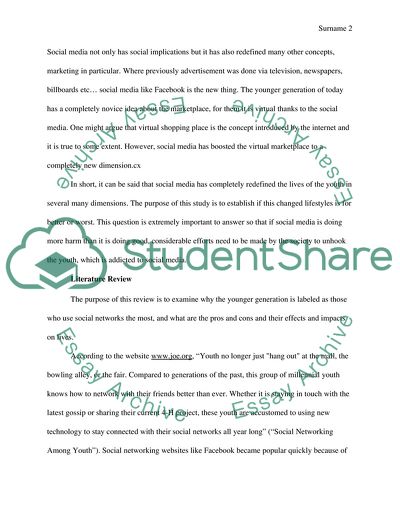Cite this document
(The Effects of Social Networking among the Youth Research Proposal Example | Topics and Well Written Essays - 4250 words, n.d.)
The Effects of Social Networking among the Youth Research Proposal Example | Topics and Well Written Essays - 4250 words. https://studentshare.org/media/1861087-the-effects-of-social-networking-among-the-youth
The Effects of Social Networking among the Youth Research Proposal Example | Topics and Well Written Essays - 4250 words. https://studentshare.org/media/1861087-the-effects-of-social-networking-among-the-youth
(The Effects of Social Networking Among the Youth Research Proposal Example | Topics and Well Written Essays - 4250 Words)
The Effects of Social Networking Among the Youth Research Proposal Example | Topics and Well Written Essays - 4250 Words. https://studentshare.org/media/1861087-the-effects-of-social-networking-among-the-youth.
The Effects of Social Networking Among the Youth Research Proposal Example | Topics and Well Written Essays - 4250 Words. https://studentshare.org/media/1861087-the-effects-of-social-networking-among-the-youth.
“The Effects of Social Networking Among the Youth Research Proposal Example | Topics and Well Written Essays - 4250 Words”. https://studentshare.org/media/1861087-the-effects-of-social-networking-among-the-youth.


